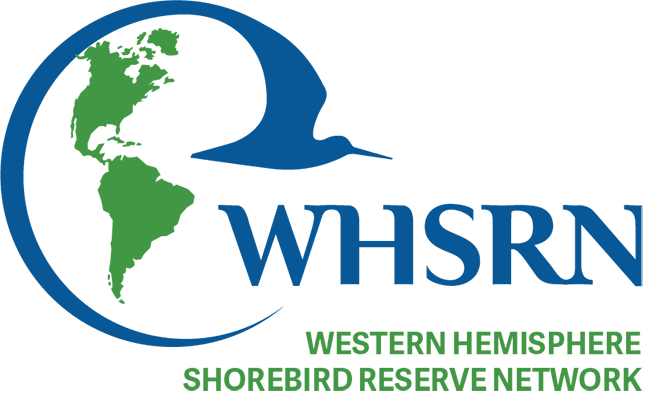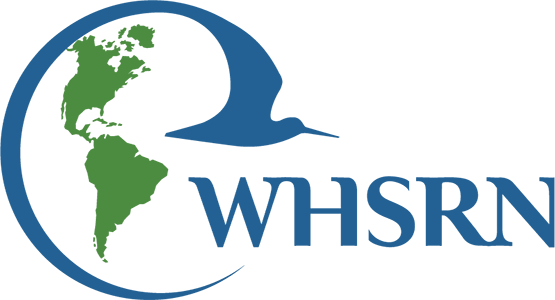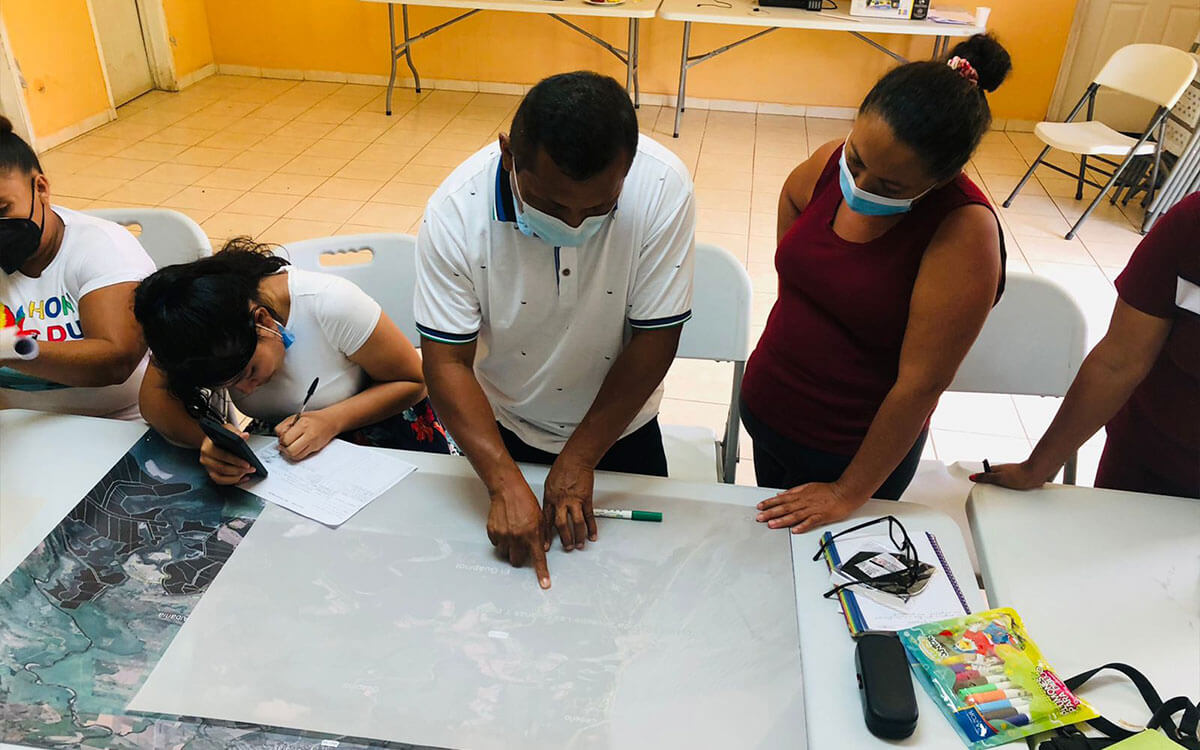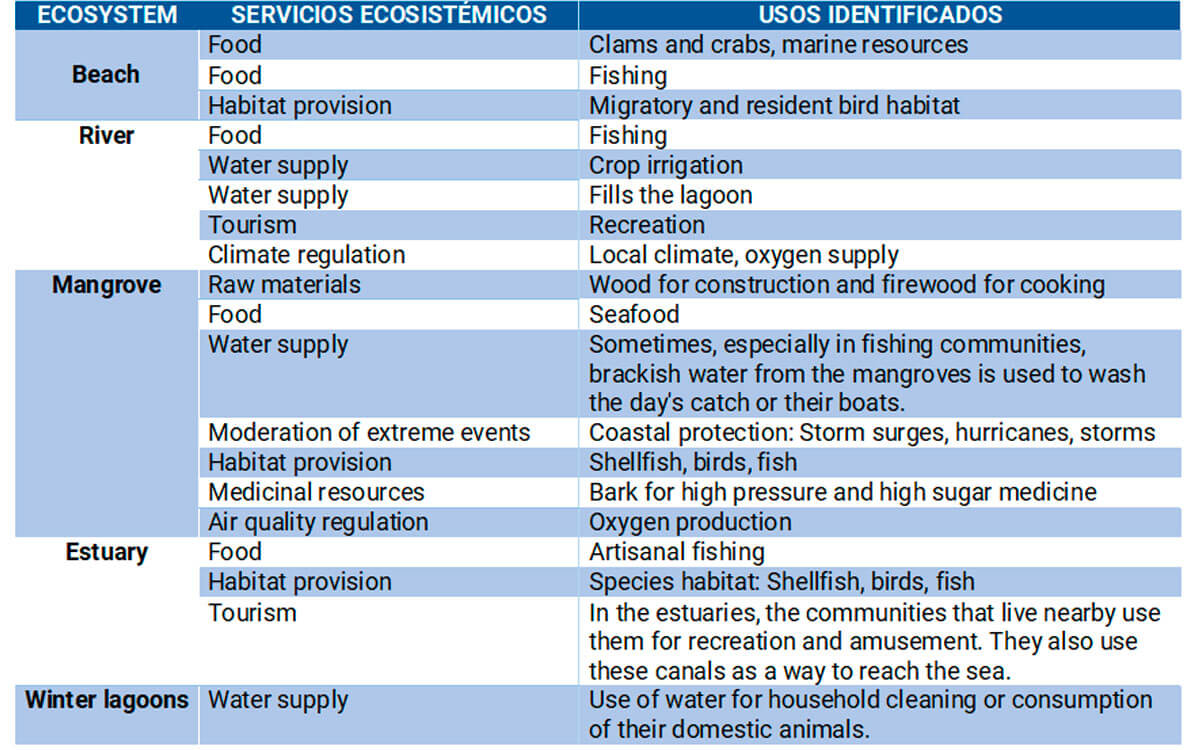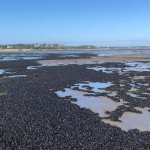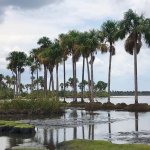By Isadora Angarita-Martínez, Julia Salazar Perla and Salvadora Morales
Conservationists and stakeholders held the first Ecosystem Services workshop in the Gulf of Fonseca in Honduras due to growing concerns about the future of local communities and shorebirds that share this site. The purpose of the workshop, jointly attended by the Executive Office of the Western Hemisphere Shorebird Reserve Network (WHSRN), the Honduran Forest Conservation Institute (Instituto de Conservación Forestal de Honduras), inhabitants of Punta Condega and El Jicarito communities, local authorities, and shrimp farmers, was to better understand the benefits that humans receive from the Punta Condega-El Jicarito System in order to find more effective ways to protect this habitat. The information gathered from the workshop will be used to support the candidacy of this area as a designated WHSRN site.
When we think of the Pacific Coast of Central America, and more specifically the Gulf of Fonseca, we picture volcanic beaches, seas teaming with biodiversity, extensive mangrove forests, a huge number of birds inhabiting serpentine swamps, dreamy sunsets, and thousands of resident and migratory shorebirds. Rarely do we think about the human communities that live here, though they are charged with the continued survival of these habitats. The daily lives of people who live here have clear implications for the future of these areas and the conservation of the shorebirds which inhabit them.
The Evaluation
Three face-to-face workshops were held, accounting for the benefits or ecosystem services provided by the Punta Condega-El Jicarito System. We discussed what local communities have derived from the ecosystem over the last five years, and worked to build relationships and develop trust between all the stakeholders at the site.
The workshops explained the basic concepts of ecosystem services and the need to monitor and value these benefits. Participants identified and drew eight different ecosystems onto paper maps of the Punta Condega-El Jicarito System, and identified 13 services that these ecosystems provide local communities.
Ecosystems
- Sea
- Beach
- River
- Swamps
- Mangrove
- Winter lagoons
- Dry forests
- Grasslands
Ecosystems Services
- Nature-based recreation
- Food provision
- Spiritual
- Cultural
- Habitat provision
- Moderation of extreme events
- Regulation of air quality
- Primary materials
- Control of erosion
- Water provision
- Medicinal resources
- Provision of shrimp
- Salt pans
Left: Participants drawing the ecosystems and ecosystem services onto maps of the Punta Condega-El Jicarito System. Photo: Julia Salazar Perla. Right: Ecosystems, ecosystem services and uses identified in El Jicarito.
We discovered that the beach, the sea, and the mangroves provide the greatest number of ecosystem services to local communities. The provision of food, tourism, cultural services, and the moderation of extreme climatic events are the most frequent benefits of the ecosystems. Any alteration to these ecosystems would notably affect the survival, quality of life, and means of living of the local people, as well as change their social dynamics and economic realities, which would likely having additional impacts on local culture.
The negative effects of a deterioration in ecosystem services would therefore be decisive for the local communities and other immediate beneficiaries of the Punta Condega-El Jicarito System, as well as to the System itself.
This exercise represents the first identification of ecosystem services, without yet evaluating in detail the extents to which they are exploited. A closer look at the results of the pilot phase has been recommended for future phases of the work by the WHSRN in the Gulf of Fonseca, and if possible this will also include a valuation of the ecosystem services that are provided to local communities.
Team building
Besides learning about the benefits that nature offers to human communities within this System, the workshops set the stage for communities and local authorities, industry representatives, the Executive Office of the WHSRN, and the Forest Conservation Institute to share their ideas for the future of this important site for shorebirds. It was the beginning of a conversation about how to ensure that biodiversity conservation actions are developing in sync with the needs of the human communities that depend on the Punta Condega-El Jicarito System.
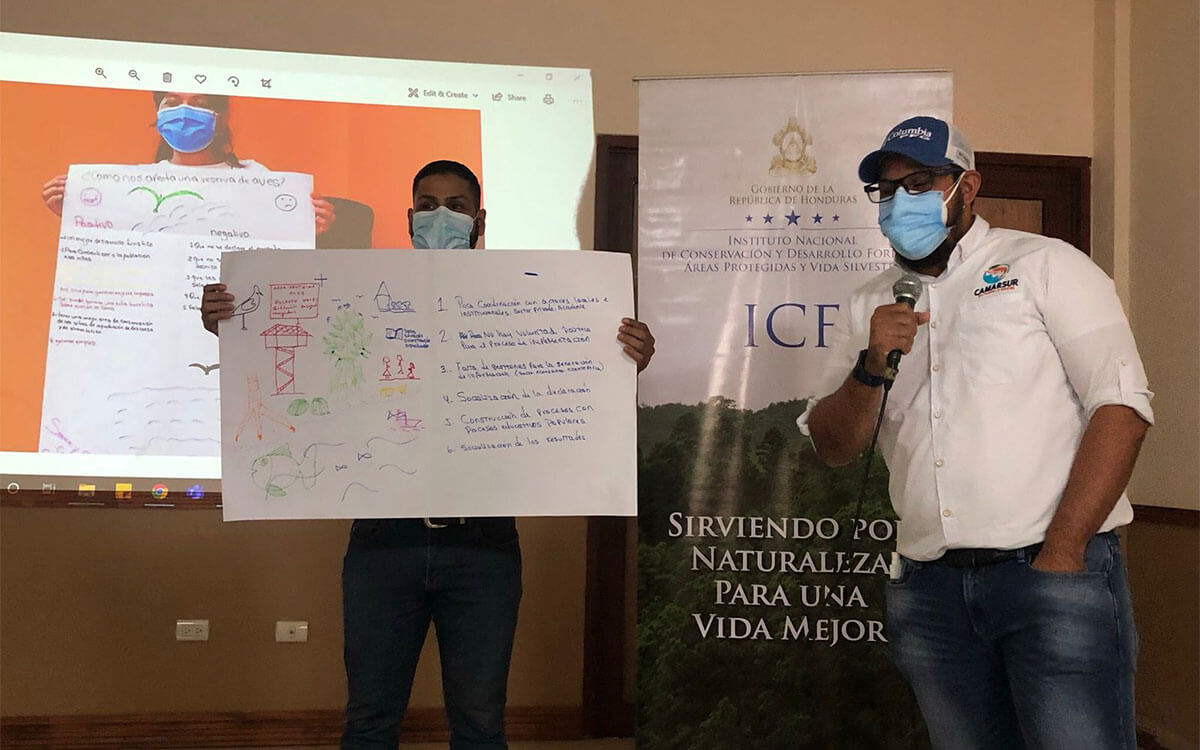
Representatives of the shrimp company CAMASUR and the Forest Conservation Institute (Instituto de Conservación Forestal) exchange information about the benefits offered by the Punta Condega-El Jicarito System. In the background, an inhabitant of Punta Condega demonstrates the type of information shared during the workshop. Photo: Julia Salazar Perla
It is important to highlight the interests of all of the stakeholders, in particular the people who live in local communities. The inhabitants of Punta Condega have been working for more than 25 years on projects for the conservation of the Olive Ridley Turtle (Lepidochelys olivacea), and they understand the importance of the protection of the site’s ecosystems and the species which inhabit them. They are also aware of the benefits that they obtain from these activities.
Organized communities like these are key partners for creating new nature reserves. Inhabitants who were born in El Jicarito have seen how this site has changed over the years and how the species of birds that they once observed in large flocks are now rare or scarce. They understand the threats that areas such as the Punta Condega-El Jicarito System face, and how it affects them and their families, and as a result are willing to protect the ecosystem against any new threats.
“Listening to the stories of these stakeholders was a positive and enriching experience,” says Julia Salazar Perla, a salt and shorebird conservation specialist at Manomet, which houses WHSRN’s Executive Office. This activity allowed us a glimpse at the future of declaring of the first shorebird reserve in Honduras, and the support that would come from local communities that understand the importance of protecting these sites that they call home.¨
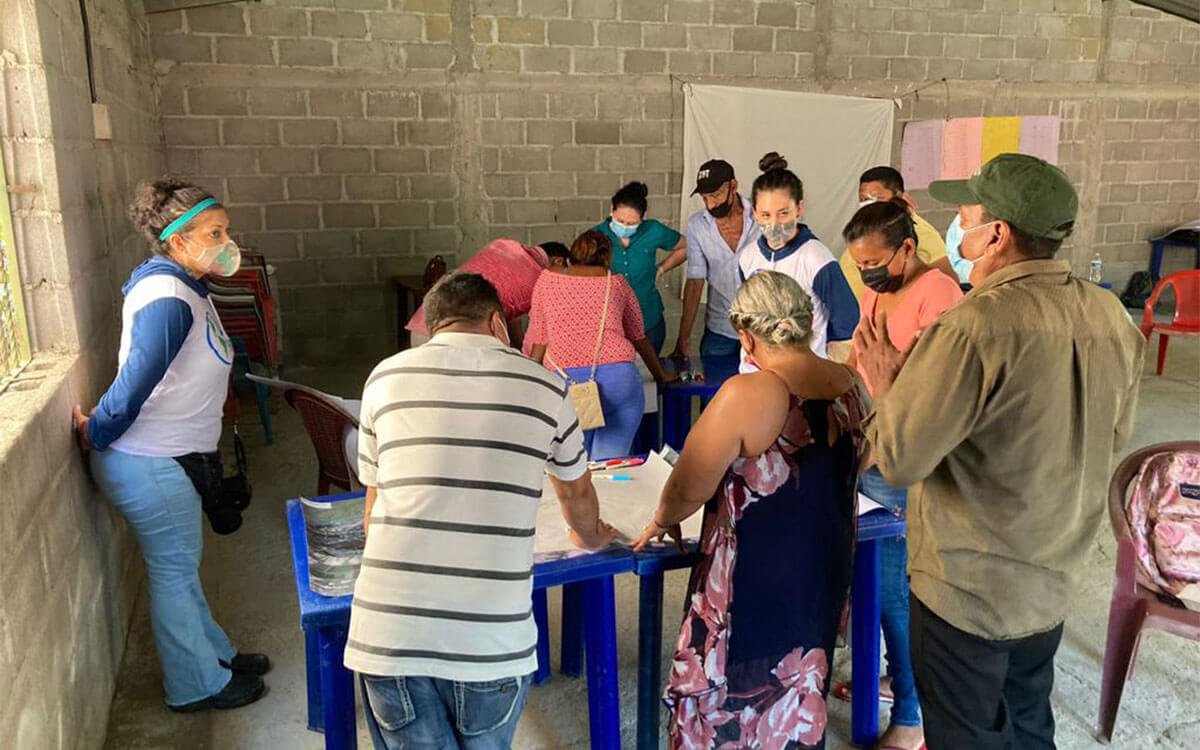
The inhabitants of the Punta Condega-El Jicarito System preparing to share information and to contribute to its conservation. Communities that are organized and aware of their impact on their local sites are key partners in the declaration of new nature reserves. Photo: Julia Salazar Perla
Following the pilot evaluation of ecosystem services, the local communities have shown themselves to be very interested in continuing the dialogue and in participating in similar future activities.
For more information about the activities of the Executive Office of WHSRN in Honduras you can contact Julia Salazar
For details about evaluations of ecosystem services that the WHSRN Executive Office offers in Honduras and other places, or if you have an interest in carrying out evaluations of ecosystem services in your local Important Shorebird Area, you should contact Isadora Angarita-Martinez
Cover Photo: Group of participants of ecosystem services workshop. Photo: Julia Salazar Perla.


